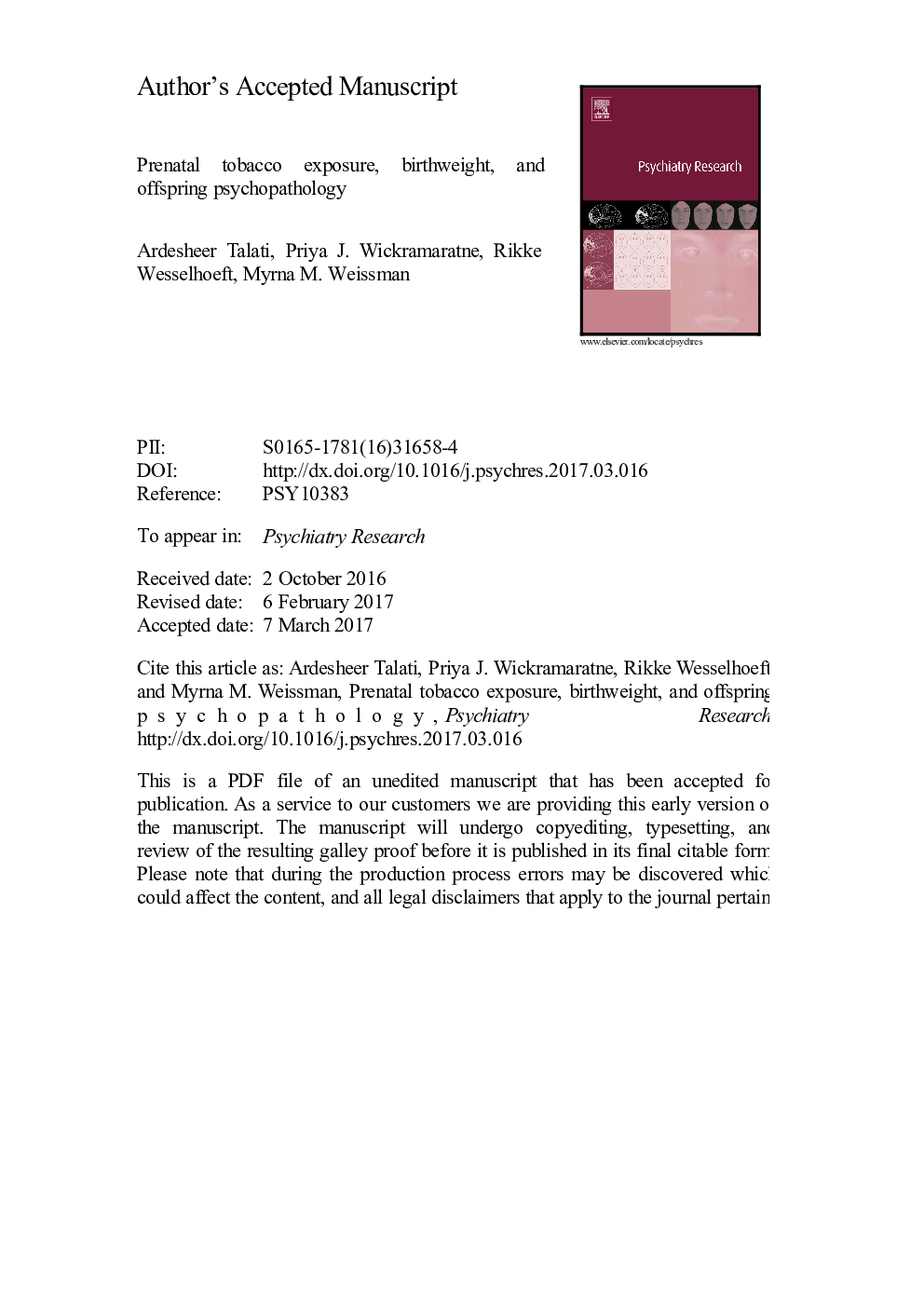| Article ID | Journal | Published Year | Pages | File Type |
|---|---|---|---|---|
| 4933439 | Psychiatry Research | 2017 | 20 Pages |
Abstract
Although prenatal tobacco exposure (PTE) is associated with several adverse offspring mental health outcomes, mechanisms remain unclear. We test whether associations between PTE and offspring psychopathology are explained by birthweight, one of the earliest-occurring outcomes of PTE. The analysis focuses on 238 offspring from a family study of depression with (1) collected prenatal histories and (2) at least one clinical interview in adulthood to assess psychiatric problems. Exposure was categorized by maternal smoking of â¥10 cigarettes daily/nearly daily; diagnostic outcomes were confirmed by clinicians using the best-estimate procedure, blind to exposure. After adjusting for potential confounders, PTE was associated with 0.7 lb(9%) lower birthweight (p=0.0002), increased rates of disruptive behavior disorders [males: OR=2.66(1.15,6.16), and (trend) substance use disorders [females: OR=2.23(0.98,5.09)], and decreased rates of mood disorders (males: OR=0.42(0.17,0.98)]. Birthweight was not independently associated with diagnoses and did not mediate the association between exposure and psychopathology. Maternal smoking has long-term adverse consequences for offspring. Although birthweight cannot be manipulated, smoking is a modifiable risk factor. Thus, cessation efforts focused on pregnant women may not only improve maternal wellbeing, but also mitigate adverse proximal (e.g., birthweight) and long-term (psychopathology) outcomes in offspring.
Related Topics
Life Sciences
Neuroscience
Biological Psychiatry
Authors
Ardesheer Talati, Priya J. Wickramaratne, Rikke Wesselhoeft, Myrna M. Weissman,
